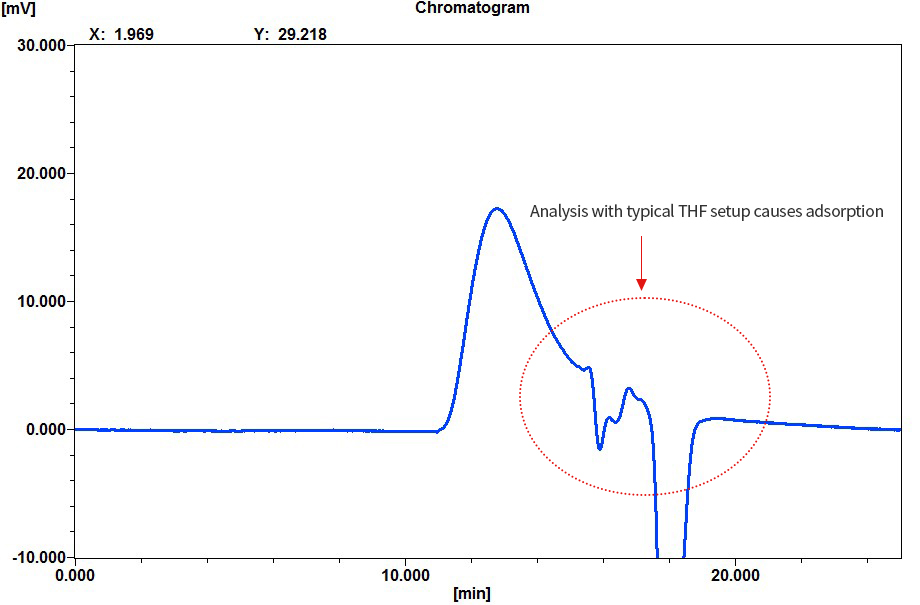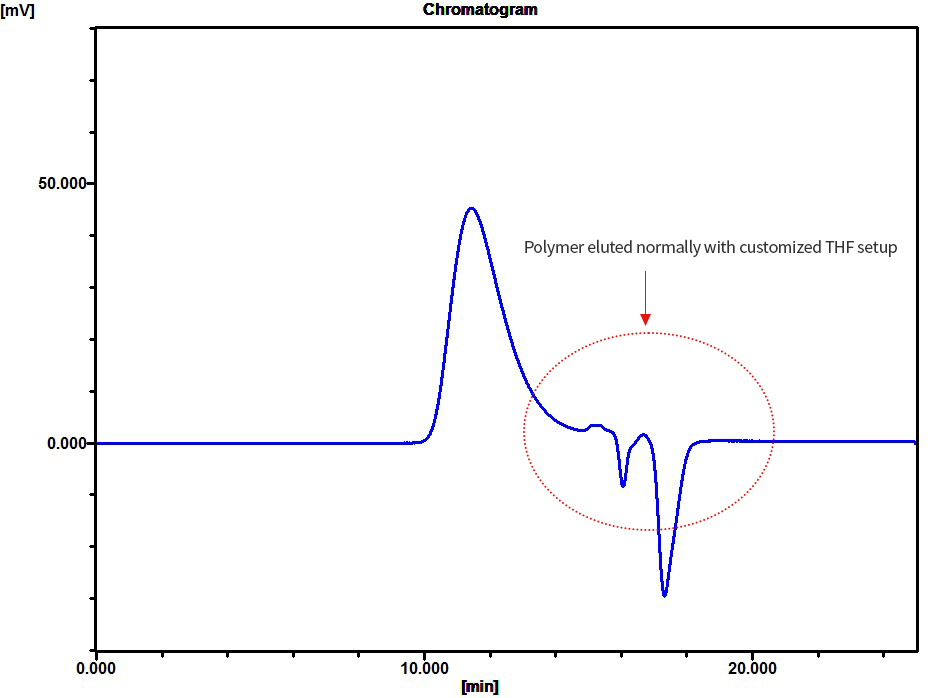Customized-GPC
We promise to support our clients with various organic/inorganic material R&Ds with utmost sincerity.
KOPTRI provides tailored GPC solutions for polymers that conventional GPC cannot analyze. We analyze these polymers by customizing GPC-setups depending on the chemical structure of the samples.
We must consider that molecular weight entirely depends on the retention time of a sample. The degree of the adsorption between the sample and packing material of the column will directly affect molecular weight calculation. In theory, only the molecular size should be the factor for elution, but in reality, polymers have various functional groups that can interact (adsorb) with the column. For example, especially polymers with numerous –COOH, -NH2 groups tend to have strong adsorption, and thus factors that can be used to minimize this effect, such as eluent, additives, modifiers, etc., must be monitored. It is practical to use acetic acid or phosphoric acid for polymers containing a high volume of acid groups(–COOH) and diethanolamine or diethylamine for epoxy precursors with many amine groups(-NH2). These additives are selected case by case, and various conditions must be considered depends on the target polymer. To tailor these analytical conditions, experiences and techniques from countless experiments are required (types, amount).
On the other hand, GPC with DMF/DMAc/NMP frequently uses LiBr salt for analysis. Using DMF over THF for most cases means that polymer has low solubility and a possibility of coagulation or entanglement. When salt like LiBr is added, Li+, Br- ions increases the polymer's solubility and relieves coagulation or entanglement. If LiBr is not added, the polymer size would be excluded as a bulk, not as a chain, which will result in a greater molecular weight.
For water-soluble polymers, additives such as NaNO3, NaCl, Na2SO4, etc., are used in analysis. Especially for water-soluble polymers, we control the ionic strength of the eluent by adding various buffers based on the ion state. If these analysis conditions are adjusted incorrectly, in most of cases there will be no signal detected. It is challenging to determine molecular weight, especially in cationic polymers (e.g., chitosan, Polyethyeneimine, etc.) due to a strong adsorption. These polymers should be analyzed with cationic exclusive GPC columns. If we carryout GPC analysis without considering adsorption, it will yield an incorrect molecular weight result of the measured polymer. Our institute is capable to professionally measure GPC in customized conditions with a high level of expertise.
If you need help with analysis, please send us a request by submitting ‘Application Form’ under ‘Contact Us’ tab, and supervising researcher will aid you with a punctual and meticulous reply.
THF-GPC Chromatograms of Sample (Typical/Customized Setup)




